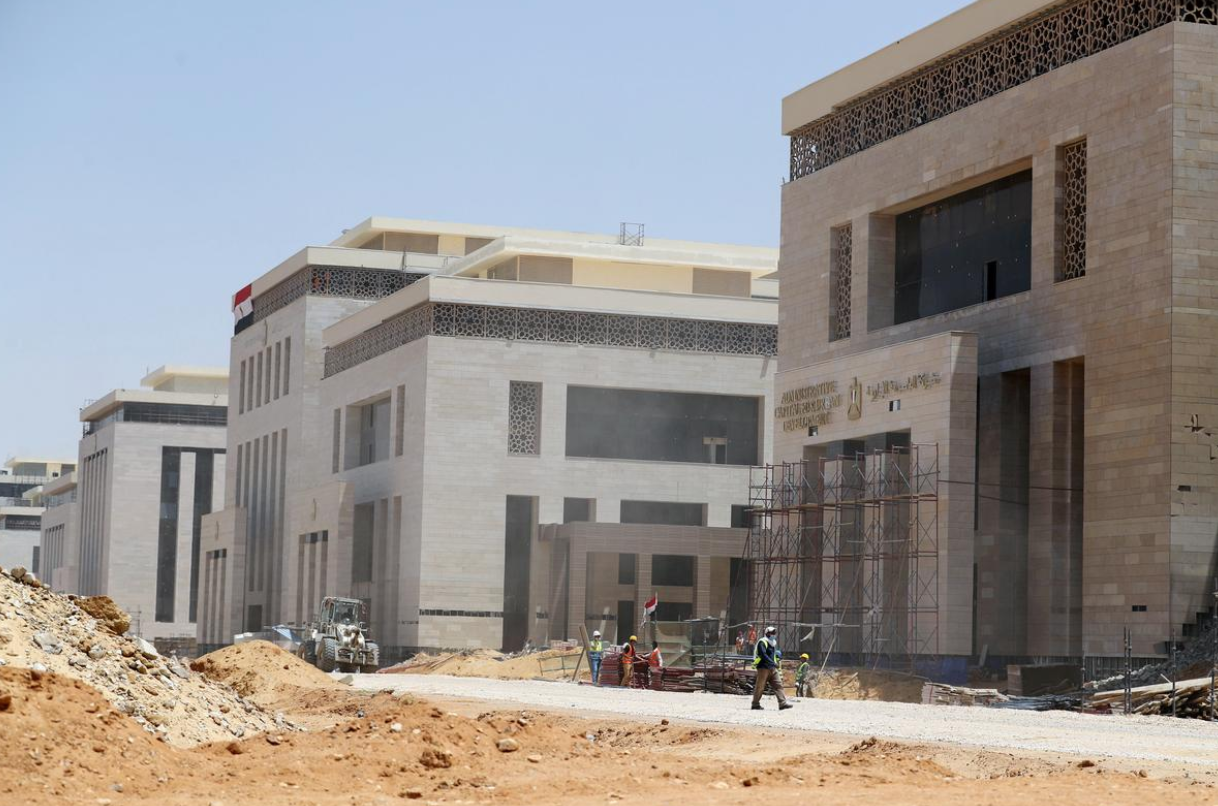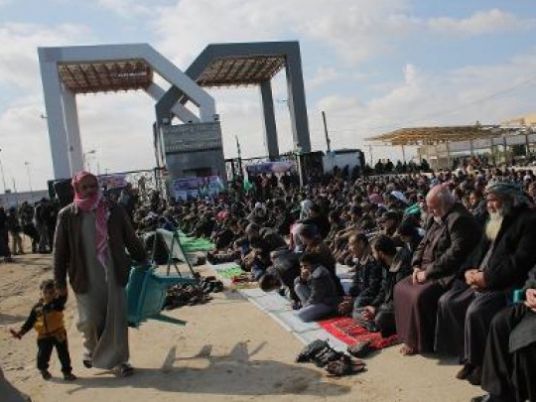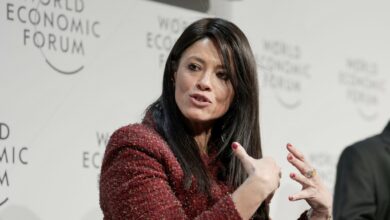
Over a century, the countries of the world fell into two traps, which proved that humankind did not make the best choice, or that excess in the decision it has taken produced negative results that necessitate review.
The most recent trap is globalization. All ways were leading to cosmic relationships that include the entire globe, and globalization was inclusive and widespread, to the point of beginning to take on a religious nature, with departure from it becoming a kind of practical disbelief.
An older trap, one that has recently become a nostalgic exercise, is the nation-state that is self-sufficient and that establishes walls and commercial protection for its markets.
The older trap has the disadvantages of narrow markets, weak competition and high costs, and it led to the tough competition that caused the Second World War. The newer trap, meanwhile, has a high cost that appeared with the coronavirus crisis.
The coronavirus pandemic revealed that what has been a frame for all the peoples of the world was in fact one of the great privileges obtained by developed countries.
China succeeded in attaining the pivotal position as a country in the whole world system, due to its centralization in supply chains of endless industries.
There were other countries that tried to get some of the global pie, mostly in East and South Asia. What was left to the rest of the peoples of the Earth, who possess less effort and wellness, was less than crumbs, or just enough to survive.
Between the nation-state and globalization, there was the ‘regional’ ring that includes a group of geographically neighboring countries that share a common history and a harmonious culture, in which participation in peace was the same as the cost of war. Europe was the historical example for this, along with its journey from the establishment of the European Community to the point where it became the European Union.
This also was subject to a major shock with the British exit from the EU, and the return of the Russian threat to the old continent, inheriting old enmities with the Soviet Union.
The threat to the region not only cane from the east, but also from the American state in the west, which was a guarantee for the region in two world wars, but which now it washed its hands of the continent and left its countries exposed to a difficult reality.
Nevertheless, Brexit may have been a sign of health because Britain, the island, did not get rid of what it envisioned as its global nature, which gave it one hundred years of global domination, or the Anglo-Saxon peculiarity that gives it the right to establish its own world across the Atlantic Ocean with the United States and Canada, and across the hemisphere to Australia and New Zealand in The Pacific Ocean.
Echoes of European conduct found resonance in other regions of the world, formed from countries that tried to expand their markets to include larger numbers of consumers, keeping pace with many forms of production specialization that allowed integration and exchange in goods, commodities, and services.
Decades ago, after dinner on Mount Lebanon, professor Saad Eddin Ibrahim, in praising the food and those who hosted us, said that if Arab unity ever existed, Lebanon would be specialized in banking and the hospitality industry, including hotels and restaurants.
This was before the advent of Hezbollah, the multi-stage Lebanese movement, the collapse of the Lebanese pound, and of course the civil war.
And when it loomed one day that the Dubai Ports World company was on its way to entering the American market as a competitor to American companies, the UAE seemed qualified for this specialization among Arabs.
It is true that the matter faced many obstacles in the United States, but the company soon obtained a concession from many international ports, and its airlines succeeded in invading the aviation market in the United States.
And last week the UAE succeeded in sending a probe to Mars, sharing with the United States and China the aspiration to travel outside the orbit of the Earth.
The UAE has become qualified to specialize in services and advanced industries, including its development in the fields of solar energy and the management of complex global multinational companies.
The question that has always existed is: What can Egypt specialize in that will give it competitive capabilities, whether in its region, or even in the world, if the pendulum again heads in this direction.
Often this question was approached during our internal dialogues at the Al-Ahram Center for Political and Strategic Studies. There was a point of view that no matter how much progress was made in the world it would always be in need of building materials, cement, iron and steel, or in short the products of the second industrial revolution, labor-intensive and high in energy consumption, which is appropriate for a country that its population continuously increases.
The late professor Mohamed el-Sayed Said, God rest his soul, defended another point of view with enthusiasm. He said that since Egypt did not catch up with either the first industrial revolution or the second, it therefore has to go directly to the third industrial revolution, which is based on information and computers.
We did not imagine that our lives would last long enough for us to witness the fourth revolution: the information revolution coupled with biotechnology in a new leap for humanity.
The debate between the two points of view was of a theoretical nature, because the reality was that Egypt has a diversified economy and it can, by virtue of its location and its inhabitants, live in different and various historical stages, and in all cases can be a great meeting place for producers and consumers. I do not know whether or not this type of debate is still taking place within governmental, legislative or research institutions.
But in light of our arrival, and the world as well, at the post-coronavirus turn — which is attested to by the global trend to return to the ‘New Normal’ with the promise of soon reaching the vaccine for the disease — then a review of what we can specialize in and deepen what currently exists becomes a kind of credit.
The infrastructure that has been built during the past six years gives us great comfort in the study-based choice, not only for our markets, but for the countries with which we want to build the region.
Historically, most of our talk was about “the Arab regional system,” and the singular book about it, which was written by professor Ali Eddin Hilal and Mr. Jamil Matar. But perhaps the time has come to approach a less ambitious regional market that is similar to the group of the Scandinavian countries Sweden, Norway, Denmark and Finland, or the Benelux which includes Belgium, the Netherlands and Luxembourg, a market consisting of Egypt and most of the Arab neighboring countries interacting with it commercially, industrially and on a human level, of course.
At such time, perhaps ‘specialization’ will be more evident for us and for those close to us as well. The demarcation of the Egyptian maritime borders in the Red Sea and eastern the Mediterranean Sea gives indications of the intense Egyptian cooperation in the near future.
___
Image: (REUTERS/Mohamed Abd El Ghany/File Photo)




